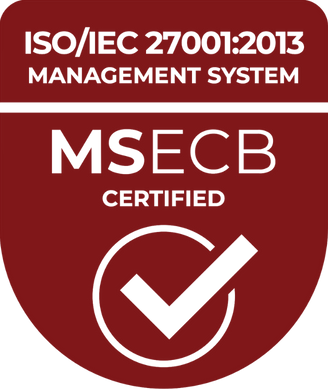Skills – are you on top of your most important asset?
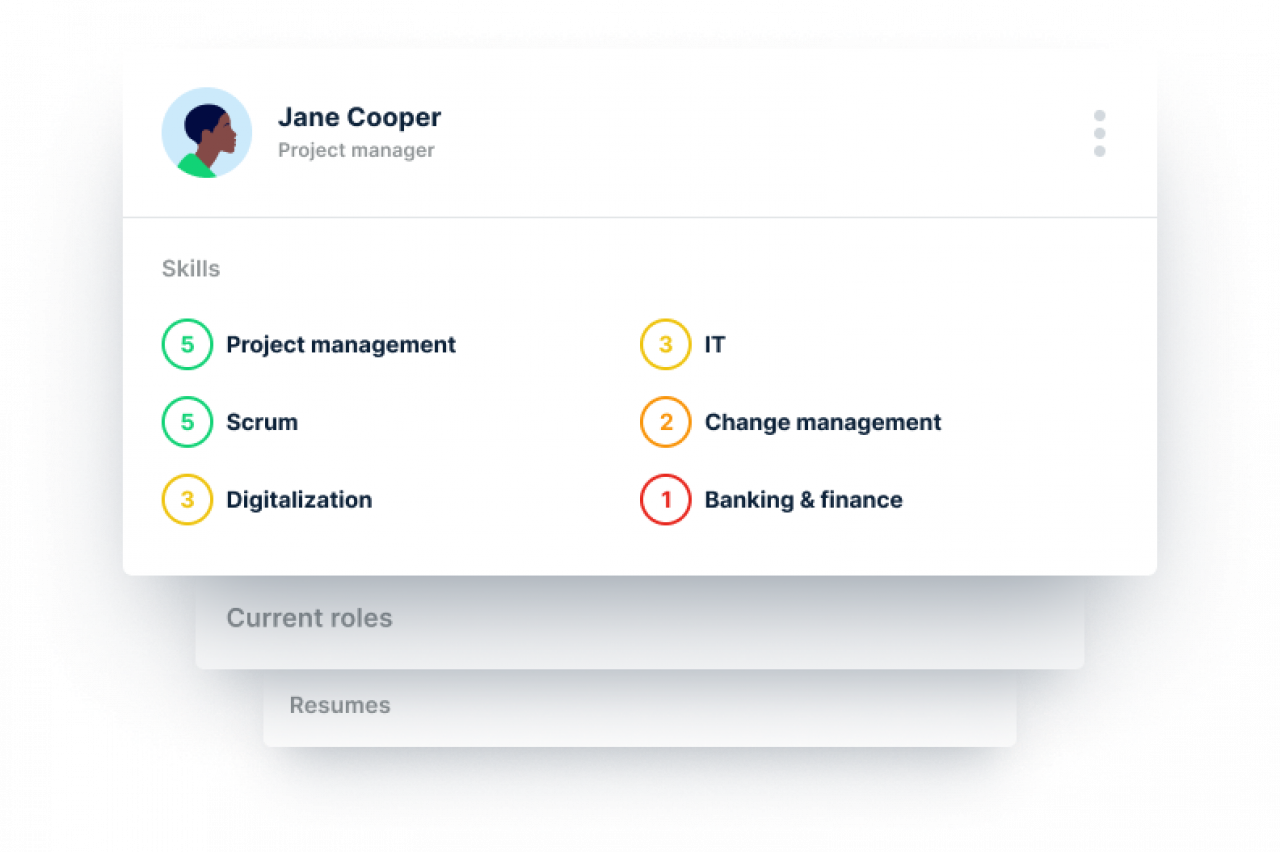
Skills Inventory – the most important source for your competence development strategy!
In the consulting industry the core business activity involves selling services based on individuals’ set of skills. Nevertheless, it is surprising to see that there are still so many consulting firms that do not work with their skills inventory in a more structured manner. This is particularly important during times of market uncertainty, when there is a risk that the demand for various services suddenly will decrease.
By always knowing which skills you possess in your company, it becomes easier to present a coherent proposal to new customers. A detailed skills inventory that also includes skills which have not been in demand in recent times can also help create new business opportunities, in particular in a market that is subject to rapid change and fluctuation.
It also becomes easier to work strategically and to compare market demand, prevailing trends, and what your organisation needs to improve and strengthen through competence development, recruitment, and expansion of networks.
The management team or those responsible for such issues should place skills inventory high on the agenda when it comes to ensuring a correct balance of demand for supply and demand for current and future skills. This forms the basis for plans and activities relating to your competence development strategy.
Good skills inventory practice provides answers to the following questions:
- What assignments should we focus on?
- What training courses should we arrange? What activities are required, and what budget do we need to set?
- Whom should we recruit, and when should we supplement our in-house skills with external partners?
Make things easy for your sales staff and consultant managers by clarifying the skills and areas your consultants want to work with and develop within. Make it a part of your corporate culture to focus on highlighting your skills, both internally and externally. Be proud of your employees and the skills they have!

Every consultant should be able to register and update their skills in a simple manner and on a continual basis. The basis for this process consists of assignments, customers, skills (and level thereof), certifications (period of validity, institution, level), courses, and training programs.
Streamline the way you work with tools that lower the thresholds for capturing data, motivating your employees, and providing a relevant context. You will soon realize that your consultants possess far more skills than is apparent from a traditional text document.
Compare your skills inventory with the demand for skills in customer inquiries, procurement documents, and customer dialogues.
- What trends can you see?
- What skills are you missing?
- Do you need to provide training to existing employees or recruit new talent in order to cover such shortfalls?
- Should you collaborate with business partners or sub-contractors?
You will gain a significant advantage in relation to your competitors if you are able to meet with a new or potential customer and immediately answer their questions about how many of your consultants possess a certain skill, demonstrate the breadth of skills that exists in your firm, and illustrate the profiles of your top talent.
Pitfalls
Make sure that your skills inventory does not become:
- Dependent on specific individuals.
- Outdated (for example, due to updates only every 6th or 12th month – strive to update your skills inventory on a monthly basis).
- Isolated from other key processes.
- Too general in nature (if the top priority is to list all of your skills, the next priority should be to rank them and connect them to earlier projects, qualifications and training, certifications, and references).
Skills inventory helps you to identify any gaps between market demand and the services you are able to offer. Try to be timely in your implementation of required training and recruitment activities, or to resolve any temporary lack of skills by engaging the services of relevant sub-contractors.
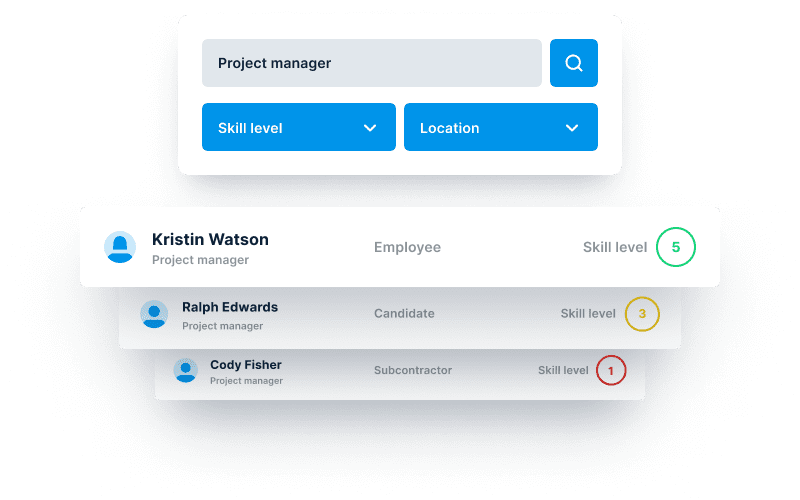
Make sure that you avoid the risk of your skills inventory becoming too dependent on one or a few key individuals, as this will leave your firm vulnerable in the event of sickness or if a key individual chooses to leave. By utilizing modern tools that have been specifically developed for skills management, you make it easy for your employees to update their skills profiles on a continuous basis. This means that you achieve a skills inventory that is always up to date, almost to the point of real-time accuracy. Such tools immediately remove the need for Excel files or traditional HR tools and generate major value in relation to your consulting firm’s core business – selling services based on the skills of individuals!
Find out more on how to successfully attract, develop and retain individuals and their skills in the guide Skills Management for consulting firms – 77 Steps to success.

Johan Haeger - Head of Enterprise Sales, Cinode
Johan Haeger - Head of Enterprise Sales, Cinode
You may also like...
All posts
Oct 12 2023 · Cinode News
Cinode and Oneflow boost consultancies together
Oct 04 2023 · Cinode News, Consulting
Still using manual processes and guesswork in your consultancy business?
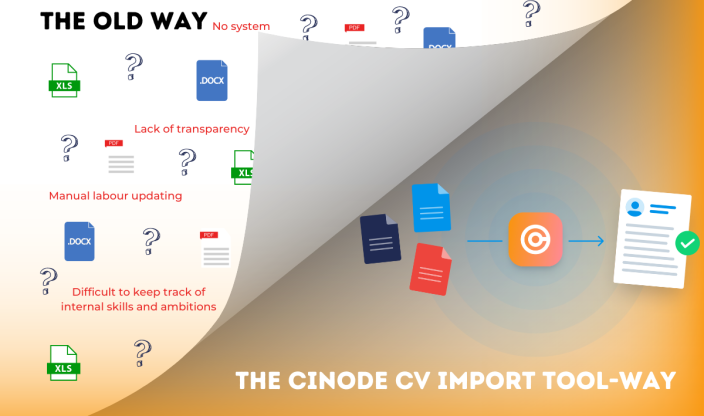
Apr 28 2023 · Cinode News, Skills Management
Easily create customized CVs with Cinode’s CV import tool

Apr 04 2023 · Cinode News, Skills Management
5 Easter eggs for eggstra effective Skills Management
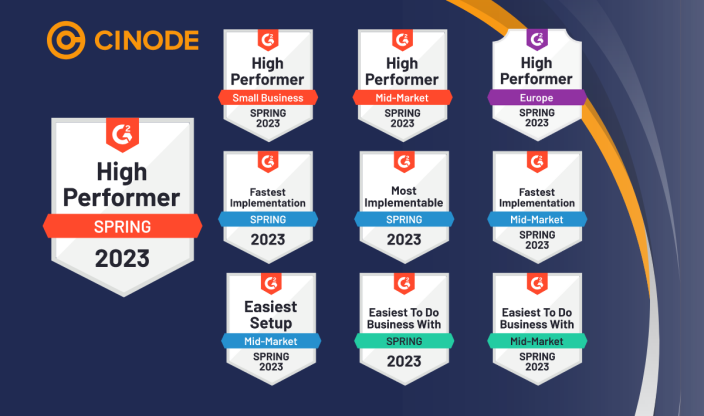
Apr 03 2023 · Cinode News
Cinode named High Performer in G2 Spring 2023 Report

Mar 21 2023 · Cinode News, Consulting
Skills Management – a hot topic in Finnish consulting companies

Mar 14 2023 · Cinode News
We get many more responses than before” – This is how Cinode Partner works [Video]

Mar 10 2023 · Cinode News
Cinode launches Free! Create your CV, make your competence inventory and join the Network – free of charge

Jan 20 2023 · Cinode News
Cinode skill sets strengthen your skills [Video]

Dec 08 2022 · Cinode News, Skills Management
This is how utilization works in Cinode (Video)

Dec 01 2022 · Cinode News, Skills Management
Add the right person to the right role with the right data (Video)

Nov 17 2022 · Cinode News
